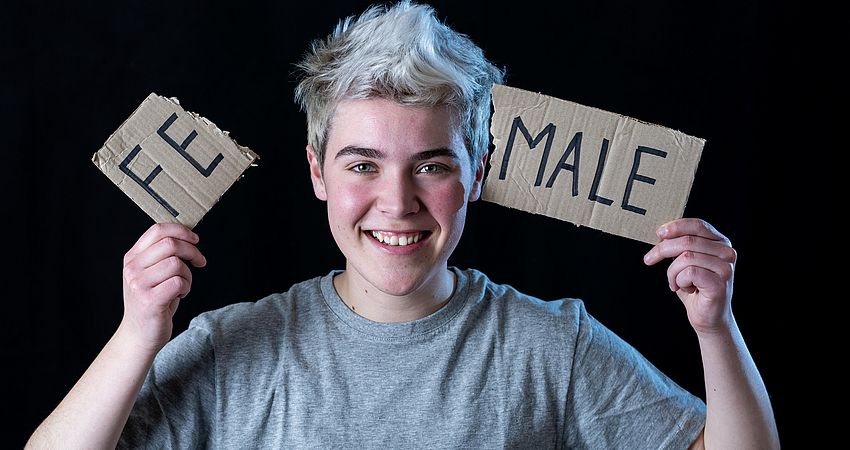Bioethics Forum
Transgender Identity in Children and Adolescents

Sam Wordley/Shutterstock.com
Topic
According to information from counselling centres in Germany, the number of children and youths who feel that their gender identity is at odds with the sex assigned to them has risen sharply in recent years. There is public controversy about what conclusions should be drawn from this and, in particular, which medical and psychotherapeutic options are appropriate. Since children and adolescents are a particularly vulnerable group, the therapeutic measures considered in the context of transidentity require their own ethical reflection.
On February 19, 2020, the German Ethics Council holds a “Bioethics Forum” on the topic “Transgender Identity in Children and Adolescents: Therapeutic Controversies - Ethical Questions” to raise public awareness of the ethical aspects of an appropriate social and medical approach to transidentity and to enter into a dialogue with the persons affected, experts from the fields of medicine, ethics and law, and the public.
The event focuses on the disputes over different therapeutic approaches and the challenges that arise for children and young people affected and their parents from a medical, psychological, ethical and legal perspective.
The following questions, among others, are taken into consideration:
- What is transgender identity and what are the experiences of children and adolescents who feel that their gender identity is at odds with the sex assigned to them at birth?
- What are the means to assess the desire for transition in childhood and adolescence from a child psychiatric perspective?
- Which parameters are decisive in assessing the appropriateness of a certain treatment offer?
- What scientific evidence exists for different therapeutic approaches?
- Which rights, in particular children's rights, must be taken into consideration with regard to psychotherapeutic and medical interventions for children and adolescents?
- How can the experiences of affected persons inform the medical context and social discourse on transidentity?
